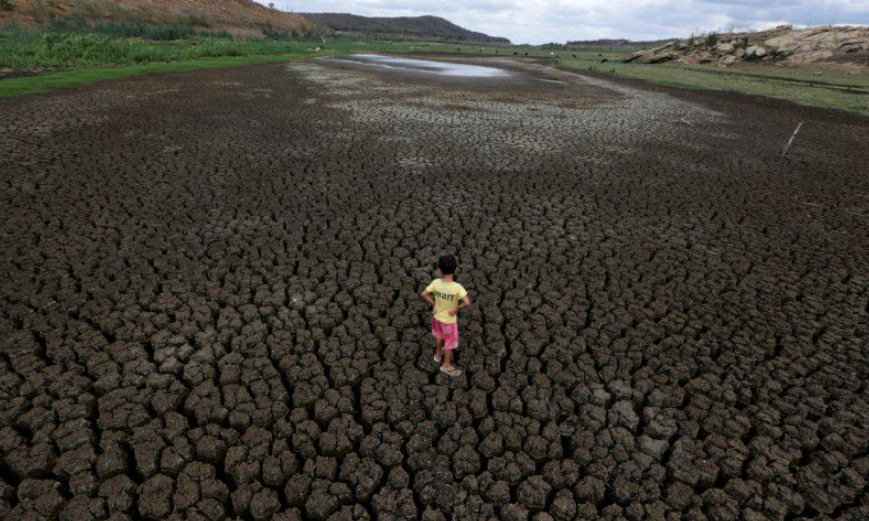On COP26: Sound and fury, signifying nothing?

COP26 is ongoing - that much is clear, from the news.
A summit of leading voices on climate change, Earth sciences, geoengineering and terraforming and – of course – how could we miss them? “World leaders” stand amongst the mix clapping and plodding along to the bombastically well-orchestrated speeches delivered on stage. A brilliant display of rhetoric, wit, and witticism.
Except, when it comes to action, there’s only so much we could expect. After all, what happens when three politicians walk into a bar? They argue over who owns the bar first – then they quibble over who is to order the drink first, prior to settling upon a debate over what drinks to order. Expecting the current crop of world leaders to be able to deliver real, concrete changes, is akin to a cow anticipating that the butcher will ease the knife gently into itself, as it is delivered to the slaughterhouse. Try harder.
There are several obstacles that world leaders – rhetoric and sanguine exuberance aside – must confront, as they come to the table to engage in dialogue over reducing carbon emissions, halting the precipitously rising sea levels, and tackling one of the most imminent crises to befall mankind over the past five centuries: climate change.
The first obstacle is one concerning responsibility. Who is to bear the responsibility for reducing emissions? Developed countries enjoy castigating and pointing the finger at developing countries – though when it comes to per capita emissions, as well as historical emissions, it sure ain’t developing countries that are demonstrably the primary culprits here. Similarly, the lukewarm calls upon developed countries – by leading developing nations – to care for the Global South, quite simply won’t cut it. Countries are driven by self-interest, defined narrowly and stringently through the frames of elections or – alternatively – rent-seeking politics. It remains unclear how countries can motivate each other to stop passing the buck, and get to work. Perhaps the sense of urgency is too low… and not for the right reasons.
The second obstacle is getting to agree on basic facts. You’d think that at an age where you can Google and look up the intricacies of climate change science at the same pace as folks seeking to learn the biography of Kim Kardashian… folks would, in fact, know and understand how urgent climate change. Well, think again. There are folks out there who deny the existence of climate change; there are also individuals who take pride in demonstrably proclaiming their ignorance about climate science – “It ain’t real, it’s all fake news made up by the corporate media!” Or so they claim… Climate denialism may be a fringe view amongst the liberal, metropolitan elite – but it is unfortunately a rather prevalent phenomenon within groups that have become just as, if not more vocal, as their pro-environmentalism/carbon-neutrality counterparts, on social media platforms and elsewhere.
The third obstacle, then, concerns action. What actions could we expect from our leaders? Biden made the first move, in apologizing for Trump’s quitting the Paris Agreement. Modi pledged that India will meet a target of net zero emissions by 2070. Now, as a saying goes in conventional economics discourse, in the long run… we’re all dead. Pledges are nice to have, but – just as Gucci and Hermes products – not particularly useful when the world is drowning under the deluge of collective apathy. “Not in my backyard!” Some would insist – sure, for it’s not as if there would be a backyard for you to plant trees in, in ten years’ time, if you don’t fix the problem that’s confronting us all as we speak.
Shakespeare wrote of "sound and fury, signifying nothing". COP26 does signify something. It signifies the fact that politicians are very good at talking. It signifies that we are at risk of committing the very same mistake that has dragged us back over the past decades, century, even – all talk, and no action. It also signifies an increasingly stratified world, with powers playing geopolitical 3-D chess around one another. The troubling news here, of course, is that there ain’t much point to political quibbling if we’re all, literally, dead.
Let’s hope more folks would come to their senses, and get cracking on solving the onslaught of problems that we must reckon with over the next ten years. Why just a decade, you ask?
The answer is simple, yet stark: we haven’t got the time. There’s no time to die.
-- Contact us at [email protected]
-

Equip young people for the future Dr. Winnie Tang
In late February, the inaugural flight of an air taxi from Shenzhen Shekou Cruise Homeport to Zhuhai Jiuzhou Port took only 20 minutes with an estimated one-way ticket price of 200 to 300 yuan per
-

Are we raising a generation of leaders, or of followers? Brian YS Wong
The essence of education is defined not by the facts it imparts, but the potential knowledge it inspires students to individually pursue on their own. Put it this way – the ideal form of education
-

The urgent need for reforms to sex education in Hong Kong Sharon Chau
Nearly one in every four university students (23%) in Hong Kong has been sexually harassed, according to a 2019 report published by the Equal Opportunities Commission (EOC). A 2019 study found that
-

STEAM should be linked to real life Dr. Winnie Tang
In the 2017 Policy Address, STEM (science, technology, engineering and mathematics) education was proposed as one of the eight major directions to promote I&T development. Since then, funding has
-

Let trees speak for themselves Dr. Winnie Tang
I often say that smart cities start with smart planning, but smart planning presupposes adequate, systematic and up-to-date data. This is important not only for city administration, but also for tree















